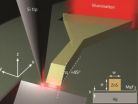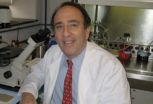(Press-News.org) Despite concerns that surgeon fatigue is leading to dangerous complications for patients and data showing worse outcomes for many patients who undergo surgery at night, new Johns Hopkins research suggests that — in the case of heart and lung transplants — time of day has no affect on patient survival.
"We aren't suggesting that fatigue is good," says Ashish S. Shah, an assistant professor of surgery at the Johns Hopkins University School of Medicine and the study's lead author. "But what is important is that, at least in this specialty, it seems we're able to deal with it without subjecting the patient to risk."
The research, , described in the Journal of the American Medical Association, covers 10 years of heart and lung transplants — more than 27,000 of them — at medical centers across the United States.
"This is one of the first papers to suggest that fatigue, sleep deprivation and odd hours really don't hurt the patient. It's a surprising finding," Shah says. "While we've felt this, other papers have suggested patients are at risk if they are treated at night. For patients undergoing heart and lung transplants, everything is fine — regardless of the hour, our study shows."
Heart and lung transplants are done whenever scarce organs become available, without regard for the clock or how much work a surgeon has already done that day, Shah noted, likely making results of the Hopkins study especially reassuring to patients and surgical teams.
Researchers have long worked to identify factors that contribute to medical errors, and attention has focused especially on medical staff fatigue associated with medical care outside of daytime hours. Several previous studies have linked nighttime care with worse outcomes. One study found that nighttime cardiac arrests were associated with lower survival and unfavorable neurological outcomes. Another found that urgent orthopedic surgery at night was linked to a higher rate of unplanned reoperation. A third found that nighttime kidney transplantation was associated with higher risk of graft failure and the need for more emergency reoperation.
Shah says it would not have surprised the researchers to find the same issues with heart and lung transplants, especially with the complication of postoperative bleeding not uncommon after complex cardiac surgery. Theoretically, surgeon fatigue could lead to careless technique, resulting in additional bleeding requiring reoperation, or it could increase the tendency to overlook surgical bleeding. But Shah and his colleagues found that the rate of reoperation was the same regardless of operative time of the day. The team also found that hospital length of stay was the same no matter what time the surgery took place.
In the new study, Shah and his colleagues reviewed United Network of Organ Sharing (UNOS) data on all adult heart and lung transplants in the United States between January 2000 and June 2010. Of the 16,573 who underwent heart transplants, half were done during the day and half at night. After one year, the survival rate for heart transplants was 88 percent for daytime recipients and 87.7 percent for those who got their new hearts at night. Researchers categorized daytime operations as those where the critical portion of the surgery took place during the day. Successful heart transplants can take as many as five to 10 hours to complete, says Shah, a cardiac surgeon.
For the 10,545 lung transplants, roughly half were done during the day and half at night. After one year, 83.8 percent of those who got their organs during the day were still alive, compared to 82.6 percent of those who had their surgeries at night.
Shah says he thinks the success in heart and lung transplant outcomes, no matter the time of day, is a testament to experienced transplant teams who have figured out how to effectively perform complex surgeries on very sick patients, despite fatigue and emotional stress.
Shah says his new findings are a good example of the need for more outcomes research like the current one. Without specifically looking at the question of fatigue and medical errors in heart and lung transplants, the assumption would have been that, as in many other cases, these surgeries are less safe when done at night, he says.
"It's worth asking these questions rather than extrapolating the conclusions from other specialties," he says.
Heart and lung transplant teams could serve as a model for others, Shah says, and researchers may learn something from examining why they are so successful and using that knowledge to improve outcomes in other specialties.
INFORMATION:
Other researchers involved in the study, all from Johns Hopkins, are Timothy J. George, M.D.; George J. Arnaoutakis, M.D.; Christian A. Merlo, M.D., M.P.H.; Clinton D. Kemp, M.D.; William A. Baumgartner, M.D.; and John V. Conte, M.D.
For more information:
http://www.hopkinsmedicine.org/transplant/
END
A cloud-based environment offers convenient and cost-effective access to technology. However, it also increases the security risk and need for appropriate authentication and authorization processes--particularly as enterprise information extends from in-house systems to popular software-as-a-Service (SaaS) offerings, such Salesforce.com and Google Apps. A cloud-based approach to centralized identity management provides a robust alternative to server-based solutions for enabling secure access to diverse applications, whether on-premise or running as SaaS.
IT architects ...
New research from the University of Leicester raises concerns about higher than expected mortality following acute coronary events such as heart attack in those with significant mental ill health.
Researchers from the University of Leicester in the UK and Curtin Health Innovation Research Institute in Australia examined 22 previous studies involving 825,754 individuals, comparing care given to those with and without serious mental disorders.
They discovered that there was higher than expected mortality following acute coronary events such as heart attack in those ...
Since the Industrial Revolution, over half of all the CO2 produced by burning fossil fuels has been absorbed by the ocean, making pH drop faster than any time in the last 650,000 years and resulting in ocean acidification. Recent studies have shown that this causes fish to lose their sense of smell, but a new study published today in Biology Letters shows that fish hearing is also compromised.
Working with Professor Philip Munday at James Cook University, lead author Dr Steve Simpson of the School of Biological Sciences at the University of Bristol reared larvae straight ...
Irvine, Calif. — Environmental and inherited risk factors associated with multiple sclerosis – previously poorly understood and not known to be connected – converge to alter a critical cellular function linked to the chronic neurologic disease, researchers with the UC Irvine Multiple Sclerosis Research Center have discovered.
The findings, which appear in the online, open-access journal Nature Communications, suggest that a unifying mechanism may be responsible for multiple sclerosis and point to therapies personalized according to genetic factors.
"MS results from ...
Long-term relationships make the commonly abused drug amphetamine less appealing, according to a new animal study in the June 1 issue of The Journal of Neuroscience. The findings suggest that social bonds formed during adulthood lead to changes in the brain that may protect
against drug abuse.
Prairie voles are rodents that form lifelong bonds with mating partners. In the new study, researchers directed by Zuoxin Wang, PhD, of Florida State
University, found that male voles in established relationships displayed less interest ...
STANFORD, Calif. — More than two dozen widely cited studies linking genes or other "biomarkers" to specific diseases vastly overstate the association, according to new research from an expert in scientific study design at the Stanford University School of Medicine. As a result, clinicians may be making decisions for their patients based on inaccurate conclusions not supported by other, larger studies.
The widely cited studies include one linking the BRCA1 mutation with colon cancer, another that links levels of C-reactive protein in the blood with cardiovascular disease ...
The creation of a new quasiparticle called the "hybrid plasmon polariton" may throw open the doors to integrated photonic circuits and optical computing for the 21st century. Researchers with the U.S. Department of Energy (DOE)'s Lawrence Berkeley National Laboratory (Berkeley Lab) have demonstrated the first true nanoscale waveguides for next generation on-chip optical communication systems.
"We have directly demonstrated the nanoscale waveguiding of light at visible and near infrared frequencies in a metal-insulator-semiconductor device featuring low loss and broadband ...
Two years ago, a widely publicized scientific report plucked an old mouse virus out of obscurity and held it up as a possible cause of Chronic Fatigue Syndrome. According to a new study published today by a group of researchers in California, Wisconsin and Illinois, that report was wrong.
The mouse virus is not the culprit in Chronic Fatigue Syndrome, said University of California, San Francisco Professor Jay A. Levy, MD, the senior author on the study, published this week by the journal Science.
"There is no evidence of this mouse virus in human blood," said Levy, ...
A cell phone-sized, wireless near-infrared device is as reliable as the current "gold standard" invasive tests in determining bladder disease, according to a study by researchers at the University of British Columbia, Vancouver Coastal Health and the Child & Family Research Institute (CFRI).
The new physiologic information gathered through near-infrared spectroscopy (NIRS) could also advance treatment that tackles the root causes of urinary incontinence, says the research team.
Published in the current issue of the International Journal of Spectroscopy, the study is ...
Although known for over a century, cryptosporidiosis was believed to be an extremely rare condition and it only gained attention with the discovery that it can affect humans, especially immune-compromised individuals. It is caused by a single-cell parasite, one of a family known as cryptosporidia. Some cryptosporidia also infect reptiles, where after a sometimes lengthy incubation period they cause gastrointestinal problems even in otherwise healthy individuals. The condition is usually persistent and is presently impossible to cure. It is therefore important to minimize ...


